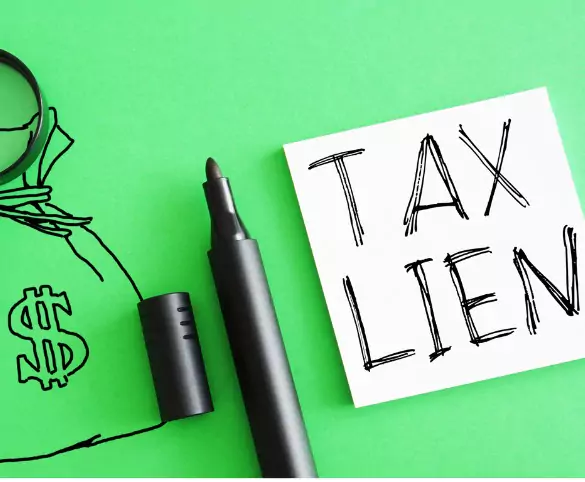Moving homes is both an exciting and scary prospect! A lot goes into picking out a new home, but even more goes into selling your current one. From fixing up and cleaning your property to finding a real estate agent, there’s much to do before listing your home for sale. However, before you can begin showing your home to prospective buyers, there’s one crucial step that only an attorney can assist with: checking to make sure your home has a clean title. If something like property liens have been placed on your home, a title search can uncover them. With the help of an attorney, you can find a resolution for your liens and have your home on the market in no time.
How Do Liens Prevent You from Selling Your Home?
Good luck trying to sell a home in Illinois with liens on it! While you can “technically” sell a home with a lien, getting buyers and mortgage companies to go through with the sale is another story. When there is a lien on the property, the lienholder has a legal claim to it. Meaning that whoever holds the title, be it you or an eventual buyer, the responsibility falls on their shoulders to pay the lien. This becomes further complicated when attempting to get a mortgage, as a mortgage company will not allow buyers to take out a loan until a lien is fully resolved. All this to say, it’s more trouble selling a home with liens than it is to resolve those liens before the sale.
What Liens Should You Look Out For?
With the help of an attorney and title search, undisclosed or unknown liens can be quickly identified. Moreover, understanding the types of liens on your property and how they came to be is vital to selling your home. Examples of liens you’re most likely to see with your property include:
- Mortgage Lien: This is the most common type of lien and is placed on your property when you take a mortgage loan. If you fail to make your mortgage payments, the lender can enforce the lien to recover their money.
- Property Tax Lien: If you don’t pay your property taxes, the local government can place a lien on your home. This type of lien typically takes precedence over all others.
- IRS Lien: The Internal Revenue Service can place a lien on your property if you fail to pay your income taxes. This lien is valid as long as you owe money to the IRS.
- Homeowner’s Association Lien: If you live in a community with a homeowners’ association (HOA) and fail to pay your HOA dues or fines, the association can place a lien on your home.
- Mechanic’s Lien: If you don’t pay a contractor, subcontractor, or supplier for work done on your home, they can file a mechanic’s lien against your property.
- Judgment Lien: If you lose a court case and don’t pay the judgment, the winning party can file a judgment lien against your property.
- Child Support and Alimony Lien: If you fail to pay child support or alimony, the recipient can file a lien against your property.
What Are Your Options?
Unfortunately, with a property lien, there’s little that can be done to get rid of it other than paying it off. However, there are a few other legal methods for discharging a lien. Especially if you believe a lien was unfairly placed against your property, you have a right to seek legal intervention with the help of attorneys like those at Essig Law. The options available to property owners wishing to rid their home of liens include:
- Pay Off the Lien: The most straightforward method to remove a lien is to pay what you owe. Once the debt is paid off, the creditor is legally obligated to remove the lien. Keep records of all transactions and requests for the lien removal.
- Request a Release-of-Lien Form: If you have already cleared the debt, you can request a release-of-lien form from the lienholder. Once the form is filled out and returned, the lienholder should remove the lien.
- Wait for the Statute of Limitations to Expire: In Illinois, there are different statutes of limitations for lien types. Depending on what sort of lien is place on your property, the lien might be removed after a certain period if the lienholder takes no action to enforce it.
- Negotiate with the Creditor: If you cannot pay the full amount of the lien, consider negotiating with the creditor. They may be willing to accept a lesser amount to close out the debt and remove the lien.
- File for Bankruptcy: Depending on the type of lien and your financial situation, filing for bankruptcy could potentially wipe out the lien. This is a serious step that comes with its own consequences, so it should only be considered with legal advice.
- Obtain a Court Order: In some cases, if you believe the lien has been unfairly or incorrectly placed on your property, you may be able to challenge it in court. If you win, the judge can order the lien to be removed.

Where Can You Start?
The first step to uncovering and resolving property liens is to hire a legal professional for guidance. At Essig Law Office, our real estate attorneys specialize in home sales and purchases throughout Central Illinois. We’ve helped our clients perform title searches and provided counsel on next steps to releasing or resolving a lien. Additionally, we’ve helped clients facing unfair or unverified liens have them removed via court proceedings. If you want to sell your home but are unsure of the next steps concerning property liens, call the real estate attorneys at Essig Law Office at 309-444-8041. We are located at 135 Washington Square, Washington, IL 61571.